Sometimes There's a Tractor
And other spiritual lessons from navigating life in rural Ireland.
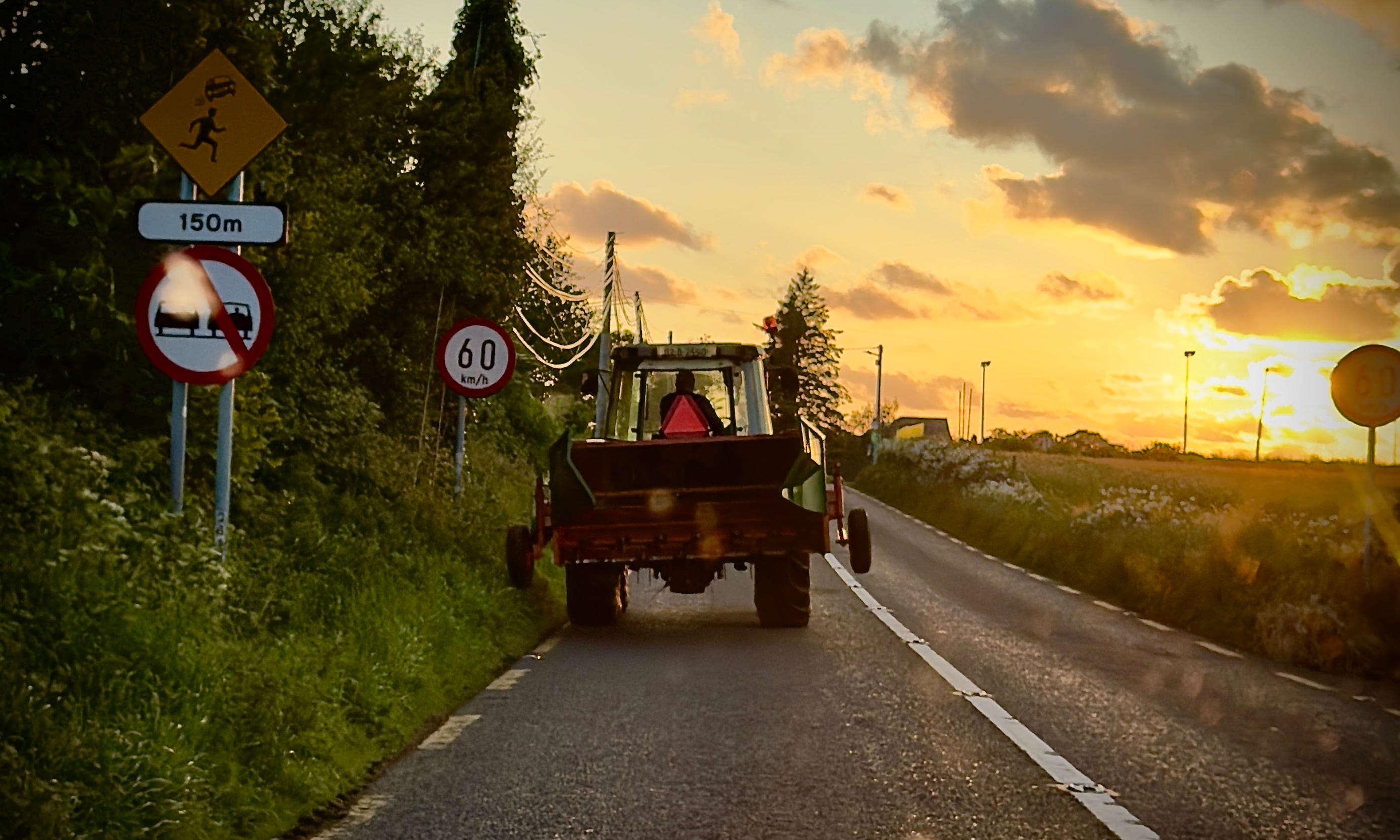
There’s a line in “The Otter”—one of my favourite Seamus Heaney poems—that says, “Thank God for the slow loadening.”
Slow loadening.
That lyrical, load-bearing phrase has been at the front of my consciousness since I arrived in Ireland six weeks ago. It describes both the pace of life in this place we aim to call home as well as the process that brought us to it.
“Some things just take time,” my friend Kelley said over brunch one Sunday in St. Louis back in early May when I was only half-way through the cross-country roadtrip that started in the driveway of the house we called home for 15 years in Laguna Beach, California, and ended curbside at Pier #12 in Red Hook, Brooklyn where my lifemate dropped Stritchie, me, and 400 pounds of luggage off to embark the Queen Mary 2 for our transatlantic voyage while he hurriedly drove to Newark to return the rental car and hop a flight to Dublin.
All of those journeys and departures took time. Years, truly, for us to reach them. The idea of living in Ireland for an extended period was conceived during our honeymoon here in 1997 and took more than a quarter-century to incubate and finally hatch.
Kelley was right, of course. Some things—often the best things, the stuff that rearranges the molecules of our beings just enough to transform how we see and move through the world or tenderizes our hearts in ways we couldn’t have imagined were possible—are a long time coming.
Patience is not one of my spiritual gifts. When I get there, and I do more often now than I did when I was younger, it’s usually after some hard-won battle and heaps of heavy soul work.
I can recall exactly where I was when I asked God for patience as a 13-year-old, huddled beneath the covers of my bed under a skylight in the spacious, drafty bedroom where, occasionally, snowflakes would blow in through a knot in the pine-paneled ceiling. As soon as I articulated the patience intention, I panicked. Be careful what you wish (or pray) for, I thought, sure (even at that tender age) God would not magically make me patient but instead give my opportunities to cultivate patience until I developed it like a muscle. That scared me.
It should have. Throughout the intervening 40 years, I’ve had countless opportunities to cultivate patience, more than a few uncomfortable and downright painful. Waiting has been the general theme. I am better at doing it now and I still loathe it.
Practice makes progress, not perfection. I am more patient at 53 than I was at 13 or 23 or 43 or three weeks ago and I hope that psycho-spiritual muscle continues to grow stronger as my walk through this life continues. And I bet when I reach the end of it, I’ll still be a little bit impatient about leaving or staying or both.
The day I arrived in Ireland—about an hour after the sun rose over the port at Belfast—my husband and I, accompanied by one of my many wonderful cousins in these parts, drove to my home county of Cavan to buy a used car. A Jeep model close to what we drove in the States, but fire engine red with a stick shift and a diesel engine and the steering wheel on the right-hand side. I grew up driving a standard, something my dearly departed father had insisted upon when I got my license so I would always be able to drive any vehicle in an emergency, and I’ve driven all over Ireland (on the “wrong” side of the car and road) many times in the past, but it had been a minute since I’d navigated the winding roads of rural Ireland with a manual transmission and the diesel engine made driving the Jeep feel like I was piloting a tractor.
After we finalized the payment and filled out the paperwork with the former owner, we had to drive the 90 minutes or so back to my cousins’ house in Northern Ireland where we were spending the night before moving into our first rental home in Mayo on the rugged west coast in the South. At my suggestion, my husband rode with my cousin while I chose to take the new-to-us Jeep on its maiden voyage solo.
The first four minutes of the drive were fine until I came to a stop sign where I needed to turn right (akin to turning left in the States) across a busy road where the speed limit was 80 kilometers per hour (roughly the equivalent of 50 mph). I rolled forward, paying close attention to the traffic coming toward me on the left side of the road (i.e., closest to me), but when I tried to put the car into first gear, I stalled it. I tried again, ground the gears, and stalled it again. That’s when I noticed a few cars behind me. I tried again, failed again, not able to find first gear on the six-gear stick, and began to panic, swearing loudly at myself and, eventually, banging on the steering wheel and shouting at myself. I switched my flashers on and continued to fight with the car and castigate myself while other drivers gently drove around me.
No one honked. No one flipped me off. No one waved their arms or shouted or pulled a face or threatened me. Only I did that to myself, angry at my perceived ineptitude and worried that I’d burn out the clutch before I drove the car more than a single kilometer or wreck it en route.
After 20 minutes (yes, really), I calmed down and ground my way into first gear, then gunned it across the road, cringe-grinded into second, then into third… continuing on my way, easing into fourth, fifth, and sixth gear as my blood pressure began to drop. Eventually, the smell of burning clutch and bruised ego that had filled the car was replaced by the aroma of burning turf and wet bogland.
I cracked a window and breathed deeply.
Still, by the time I made it to my cousins’ house in County Down, my nerves were pretty tattered. I figured my husband would think I’d driven into a ditch or something equally awful. But it was a Friday and we’d made the drive back from Cavan at peak rush hour, so, as it turns, my husband and cousin had pulled into the driveway only a few minutes before me, all of us a bit frazzled and exhausted and annoyed. Even Stritchie, who had been home alone for a few hours, was stressed out.
When my other cousin walked through the door from work, I could tell she sensed the toxic energy in the house. After hugs, we figured out what to do for dinner, someone opened a bottle of wine, and we sat down for a proper visit after not having seen each for five years (thanks to COVID.)
“You’re here now—try to relax and not worry too much about things,” she told me, kindly, after we’d finished dinner and before more relatives arrived to welcome us home. “This is Ireland. You just need to slow down.”
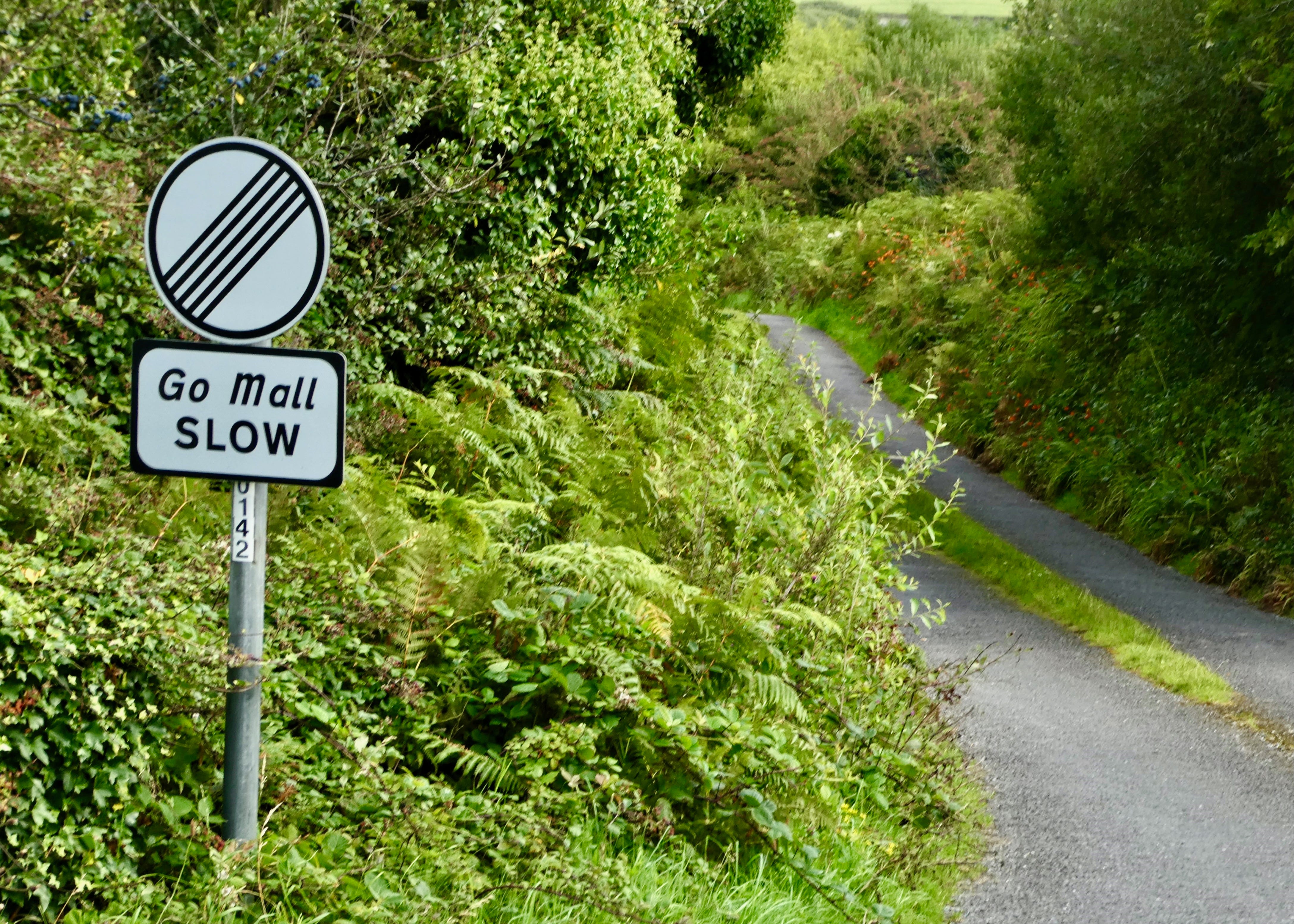
Slowing down.
That was a big part of why we decided to relocate to Ireland for an extended period of time. We want a slower, more peaceful, quieter, gentler life, surrounded by nature and birdsong, where we can hear the wind and the cows mooing and sheep bleating in pastures down the lane, where we can do one thing at a time. And where sitting and listening to a bird or a story or a song or the silence is one of those one things.
There are reminders, explicit and otherwise, to slow down throughout rural Ireland—beginning with the ubiquitous “Go mall” (Irish for “slowly”) road signs in plain black-and-white or in new-fangled flashing lights with your speed displayed in an electronic readout underneath. Then there are the quaintly articulated “traffic calming” signs that warn drivers of speed bumps or that they should anticipate slightly more congested traffic ahead and slow their roll accordingly.
Irish road signs are a hoot. They’re often blunt— “speed kills” for instance— and unintentionally funny—see the driving off a pier or falling off a cliff (with your shoes in your hand) or the dangerous crossing sign that looks like the driver is aiming for a fleeing pedestrian.
My all-time favourite, though, is something I haven’t seen during our stay so far this time, but that I’ve often encountered in the past in the West of Ireland. There, huge white upper-case letters are painted on the black roadways that say SLOW, and then a little farther on SLOWER, and then even farther down a particularly windy stretch SLOWER STILL.
I fondly remember driving near the village of Cloonboo, Galway about 20 years ago while vacationing with a friend and passing the SLOW-SLOWER-SLOWER-STILL signage and deciding it sounded like a Monty Python sketch. We fully expected the road sign conversation to continue with NOT THAT SLOW followed by STOP IT. We made ourselves laugh until we cried doing our best John Cleese and Eric Idle impressions. (While doing a little research for this piece, I discovered, much to my delight, that somewhere in the English countryside there are traffic signs that read “DEAD SLOW.” But I digress. Back to Ireland…)
When one spends time or lives in rural Ireland, road conditions often demand that you slow down even if there’s no signage insisting that you do. Whether it’s a laneway with blind corners flanked by towering hedgerows of blackberry brambles and fuchsia that’s so narrow one car barely makes it through (nevermind two), or ancient stone bridges where if you find yourself in the middle and a vehicle is coming the other way, one of you has to reverse to the end to let the other pass—you must take it slow.
You may be driving along at 80 or 100 kph when you come around a bend to find a flock of sheep—or just the one—crossing the street and taking their sweet time. This is sometimes known as a sheep jam.
You may find yourself behind a flat-bed lorry piled high with black pyramids of cut turf ambling down a bumpy road. Or you might be passing through a quiet village when all of a sudden everything stops because there’s a livestock sale on in the main square or, theoretically of course, you’ve pulled into Knock on August 15, not realizing that the ecclesiastical significance of the date means tens of thousands of pilgrims from all over the world have made their way to the basilica to venerate the Virgin Mary and you just have to pull over and cool your heels for a few hours browsing the many religious tchotchke stalls and listening to a novena broadcast over the village-wide public address system.
And then, sometimes there’s a tractor.
In rural Ireland where we live presently, this is a near daily occurrence. Working farms dot the island and there’s an unspoken rule the seems to be universally understood: Tractors have the right of way. Farmers are working the land, growing the food we eat and the sod some of us still burn to keep the house warm.
Tractors and other farm equipment do not travel at a particularly brisk clip. When I pull up behind a tractor or a tractor pulls out in front of me, it has become an occasion for me to practice the art of slowing down.
Not that I have a choice. I have to slow down, but I can do so with a different kind of intention. Often, as tractors are most commonly encountered on narrow country roads where “overtaking” (i.e. “passing” in American parlance) is either impossible or verboten, it is also an invitation to practice patience.
I’m more mindful on this Irish visit than I have been in visits past, and so when I see a tractor up ahead, I take three deep breaths (inhaling through my nose and breathing out slowly through my mouth like I’m blowing through a straw), and prepare to wait.
Rather than seeing the tractor as an inconvenience, I try to embrace it as a gift or at least as a sacrament of interruption. I have a few minutes (and sometimes more than that) to look around a bit more as the driver, to see where I am, to notice things I otherwise mightn’t if I were traveling faster.
Go mall. Slow down.
This is the way.
By and large, drivers in Ireland (even in Dublin) don’t tailgate and honking is such an infrequent occurrence that I can tell you precisely where and when I’ve heard a vehicle honk each of the four times I have since my arrival here on May 31.
On only one occasion was it a snotty honk—a huge lorry whose driver must have felt I pulled onto a dual carriageway too close or too slowly and made him slow down too quickly, so he laid on the air horn and then blasted it a second time a mile or so down the road when I signaled and exited onto a side road. I’d like to say I greeted the hostile honk with graceful contemplation, but I did not. The aggressive honk startled me and triggered my American muscle memory (and a loud F@CK OFF! with the windows rolled up) because it was, in my experience here thus far, so uncommon.
In fact, I’ve since learned that in Ireland, it is unlawful to honk a vehicle’s horn in a “built-up area” (read: populated) between 11 p.m. and 7 a.m., except in the case of an actual emergency. Having to hit your breaks gently or even abruptly is not cause to honk over here, neither is disliking the way someone is driving in general or the cut of their jib, or because you disagree with the sentiment on their bumper sticker.
Not a whole lot of rushing seems to happen in rural Ireland. People take time to greet one another and have a conversation, to listen, offer assistance, give directions (even if they’re perhaps more metaphorical than what the robots in our pockets can give us at the touch of a few buttons), to tell you when the next session is happening at the local or a wool spinning class offered at the weekend, and the best time to get fresh mussels off the boat at the nearby pier.
When we were living in north County Mayo for the month of June, we were in a particularly remote area (the nearest village was about seven miles away) and the closest occupied house—on the land worked by Farmer Sweeney, who stopped his tractor mid-field on one of the first days we were there to stroll over and have a lengthy conversation with my spouse who was out walking the dog—was about a half mile down the road. Still, whenever we ventured into town, we invariably met local folks, all of whom knew or knew of each other, and there was almost always a chat to be had in the shop or on the sidewalk.
We learned from our new friend Eoghan, who runs Woolly Alpaca Wonders with his partner Jacqui, that there is an etiquette to the way drivers greet each other when they pass on the road in that part of the world: If you don’t know the other driver, you raise a single pointer finger; if you do know the other driver, you raise four digits in a kind of friendly claw gesture with the last finger hooked to the steering wheel.
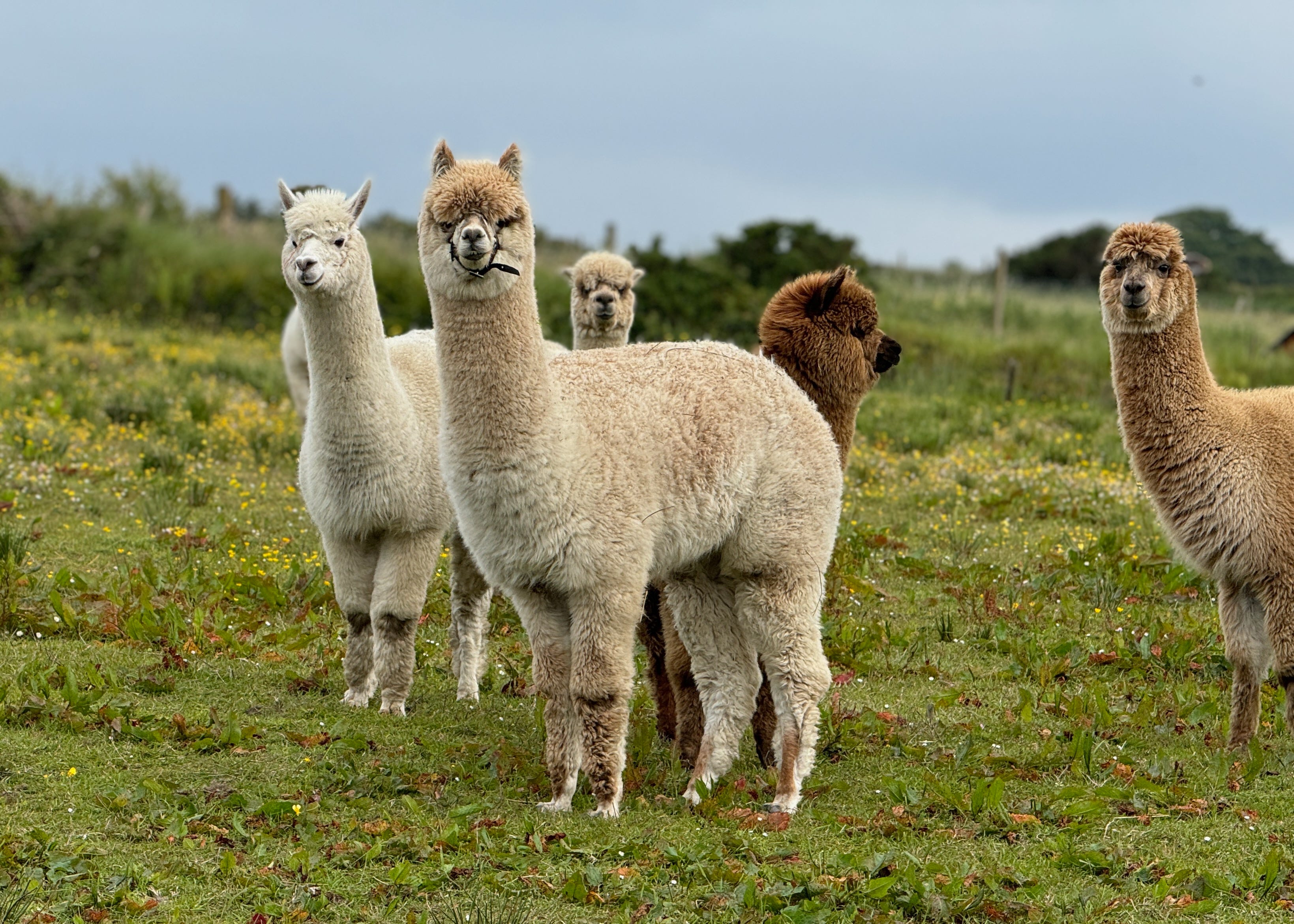
We met a few characters, as you do in small towns anywhere in the world, it would seem, and later we recounted a few tales of our encounters with one or two of them to new friends. There was Tommy, who stopped his tractor with a strimmer (aka “weed wacker”) in its bucket to warn us about the weather and prophesy biblical rain that never arrived. Or the one fella who chatted us up in the local pub who was fond of conspiracy theories (political, scientific, pop-cultural, etc.), and yet remained somehow charming in his way. Our new friends wondered if he’d also accosted us with one of his infamously politically incorrect jokes. (He had not.) “You just have to walk away from him or turn and talk to whoever else is nearby,” a friend told us.
But no one would be unkind to him.
Why? Because it’s a small town and sure they’d have to see each other again.
There’s a bit of that feeling to Ireland as a whole. It’s an island, after all. A big island, but an island still. You’ll probably see the other person again, if not tomorrow, then sometime in the future, in the pub or the shop or on down the lane.
For too many years, there was a lot of conflict between folks on this island. Ideology and identity politics, systematic oppression and cultural suppression, weaponized religion, disenfranchisement, poverty, and despair were fuel for hatred and violence. And yet, they managed to find and keep the peace. It was a slow process, slower than anyone would have liked. But it happened and for more than 25 years now, it has held.
So, maybe that’s another reason not to honk or tailgate, to take your time and slow down and try to be as patient and as kind as you can be.
Blessed are the peacemakers.
Go mall.
HOUSEKEEPING
If you’d like to follow our Irish adventures more closely, please head to Instagram where I post (usually) daily reels, photos, and stories @godgrrl. And Stritch even has her own account now: @MissStritchie.
I’m watching what’s happening in the States from my vantage point over here and I’m heartsick. Let’s all of us everywhere please be as brave and as kind as possible.
Remember that you haven’t met yet everyone you will love and you haven’t met yet everyone who will love you.
Much love from me,



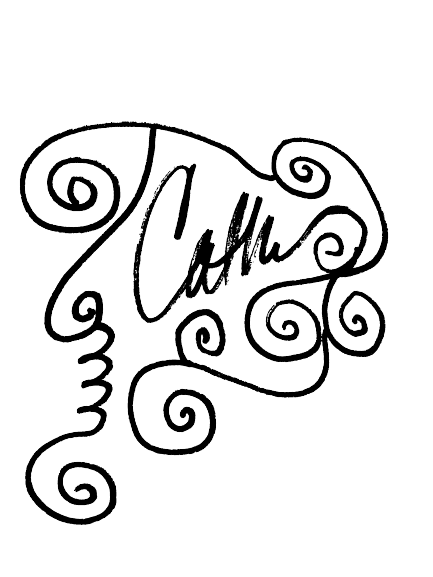
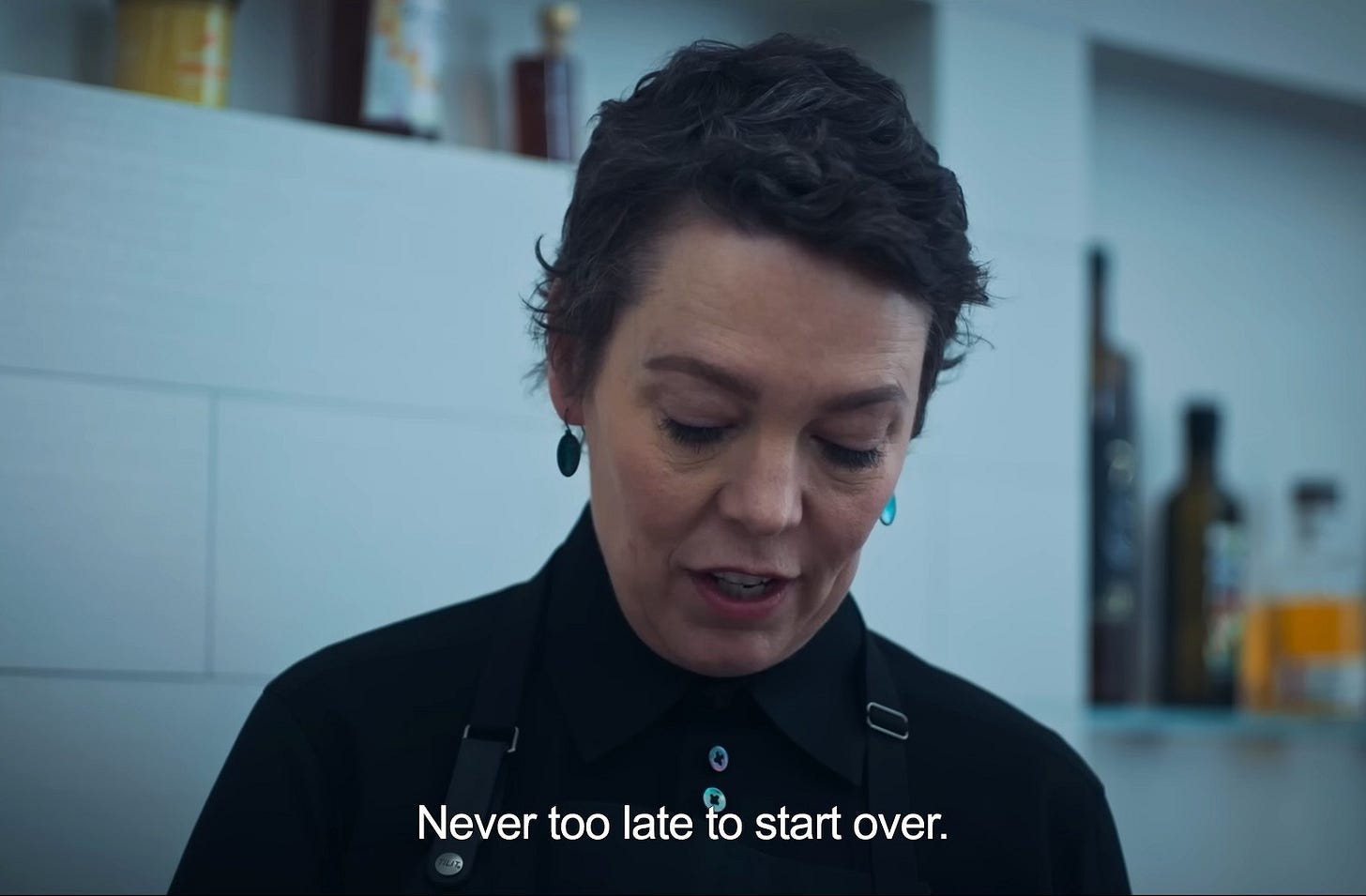
I'm fascinated by the paradox that is Irish speed limits. Motorways top out at a sedate 120k/h, great for someone like me who really likes to mosey. But then many a twisty lane is posted at a harrowing 80k/h. What gives?
There’s a hilarious description of life in the Irish slow lane in Niall Williams book “history of rain” about the cows in the lane and the speed (or lack of) they dictate to anyone in a rush. It’s a real gem. Welcome to Ireland and may your settling in be warm and with many glimmers to reassure and confirm this new path in life.